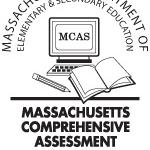What Can Education Be Without High Stakes Testing?

Ballot Question 2 passed with more than 59% of the vote, ending the MCAS as a graduation requirement in Massachusetts. Students will still take the MCAS, beginning in grade 3 up through high school, and they will still be required to pass their high school classes that are aligned with the state standards, so public education will not devolve into chaos as the opponents warned in their scare ads. There will still be a focus on serving all children in all of our classrooms, children will still be assessed through multiple measures, and there is hope that freedom from the one-size-fits-all straight jacket that is a high-stakes testing regime will allow teachers to more fully respond to the diverse learners in their classrooms.
The passage of Question 2 does raise questions and possibilities about what comes next. Twenty other states have already stepped back from a high-stakes testing graduation requirement (out of total of 27 that at one time had high stakes tests). One of those states is New York, which has just announced a multi- year plan for clarifying what their new graduation requirements will be. They have already made clear that to graduate from high school in the future, New York students will have to demonstrate proficiency in seven key areas: critical thinking, effective communication, cultural and social-emotional competences, innovative problem solving, literacy across content areas, and status as a “global citizen,” none of which are assessed by standardized tests.
One of the places we might look to learn from is already located within the public education system in New York state: the New York State Performance Standards Consortium, a group of 38 public schools that have received a waiver from the state exempting them from the Regents exams, and that have been outperforming the public schools that do require the Regents since 1998. I want to share a bit about the Consortium here as an example of what education can look like without high stakes testing, and how it can better serve the students and educators.
The Consortium formed in 1998. NY State Education Commissioner Dr. Thomas Sobel asked schools that were most effective to help those schools that were least effective, and it turned out that those most effective schools were assessing through a series of performance tasks rather than through standardized testing. Dr. Sobel granted a waiver to these schools so that they did not have to take the Regents exams, and they came together to form the Consortium. There are currently more than 30,000 students in Consortium schools, and they consistently outperform those schools that do take the Regents exams.
When they talk about their approach and what is most important about it, certain key elements stand out.
They value inquiry teaching and learning, promote student voices, foster depth over coverage, and promote school culture built on professional communities. Student assessment tasks grow out of the work of the classroom. Tasks become possibilities for assessment only after students and teachers have studied the material, discussed and debated it, and subjected it to their questions and writing. Both teacher and student become the creators of the task and take ownership of it.
The assessment process focuses on extensive reading, writing, and discussion across content areas in every grade, building towards the graduation-level performance-based assessment tasks, known as PBATs. All Consortium students prepare PBAT papers and oral presentations that include:
■Analytic essays on literature
■Social studies research papers
■Lab reports of original science experiments or engineering designs
■Narratives of the process and solution of mathematical problem solving
■Individual schools also add tasks in the arts, art criticism, world languages, internship, or other areas.
Graduation-level PBATs are evaluated by external assessors using rubrics which are developed and maintained by all of the schools in the Consortium, for both writing and oral presentations. In addition, a series of interim assessments and a range of classroom lessons, papers and projects all prepare students for their final PBATs.
Teachers receive significant professional development and work together with colleagues within their own schools and also across the Consortium to develop, review, and critique curriculum and to develop and maintain assessment rubrics. With such support and structure, teachers stay year after year, an essential element in developing and maintaining school culture.
Michelle Fine and KarynaPryiomka, in their report, ”Assessing College Readiness Through Authentic Student Work,” emphasize the positive impact the Consortium’s approach has on students, particularly young Black men:
“The authentic learning and assessment practices of Consortium schools contribute to enhanced academic progress for students … Diverse by race, ethnicity, immigration status, (dis)ability, gender, housing circumstances, socioeconomic status, academic history, and first language, these students begin high school with more marginal academic records but graduate, enter college, persist in college, gain credits, and sustain higher GPAs than their peers … Black males, in particular, benefit from a Consortium education when compared to Black males educated in traditional high school settings: They are noticeably more likely to persist in college and to receive higher grades.”
We have an extraordinary opportunity here in Massachusetts now that we have been liberated from the high stakes MCAS system. The Performance Consortium is only one example of what is possible when the focus is on putting the students front and center, making choices that serve them as learners, rather than forcing them to meet the demands of a rigid system that does not recognize them as unique individuals and learners. Ballot Questions 2 has opened some doors that have been closed for decades. I hope that we care enough about our children and are wise enough to walk through them.
Doug Selwyn taught at K-12 public schools from 1985 until 2000 and then at university as a professor of education until he retired in 2017. He is the chair of the Franklin County Continuing the Political Revolution education task force. You can reach him at dougselwyn12@gmail.com.
